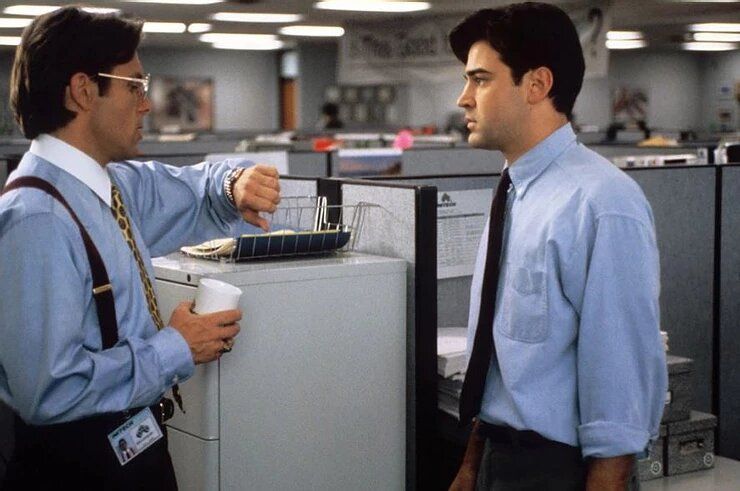Can't Stand your Boss? 4 Simple Tips to help you to De-Stress

As we all start to get back to work, the uncertainty of a rising unemployment rate combined with the need to "play catch-up" from companies whose profits have been seriously impacted by recent events can create some unique stressors in the workplace.
Under stress, we do not behave at our best. We become irritable and intolerant of others and we also become less conscious of how we are coming across to others. So too do our managers, who - yes, should by rights know better, but sadly are vulnerable to the same human flaws such as stress responses (did I say that? No I wouldn't say something like that..) and blind spots.
We have all experienced an encounter of some sort, where our boss has left a lasting, negative experience which we can't seem to shake off. That comment during the meeting, the unfair treatment, the lack of real care or authenticity, or that condescending look. Let's face it. It hurts, hurts bad, and lasts a lot longer than we care to admit.

Now I'm not going to write about how a manager needs to demonstrate situational awareness, agility, resilience, inspiring people skills and a deep and genuine interest and concern for the wellbeing of their team members. That's all fine, but there are plenty of leadership blogs and executive coaches ready out there to transform all you business leaders into shining lights of the working world.
I'm going to offer instead 4 suggestions to keep you grounded, less impacted, and potentially inspired by your boss's bad behaviour. Because they will have their bad days, no matter how much they pay an executive coach to help them. That's just going to keep on happening, it is human nature.

1) Remember you have a Choice.
When did you forget this? A long time ago (potentially) you made a decision to join this company. You decided to accept an offer of employment. Perhaps you needed the money. Perhaps also, you felt excited about the vision and shared values of the business. You might have been inspired by the person who hired you. But in the end it was your choice. Nobody is forcing you to get out of bed and come to work in a job you hate, doing meaningless work for someone you can't stand. Perhaps you resent the fact that they are very wealthy and you are not, despite the fact that you helped them to get rich through your efforts.
Here's the good news. At any time, you can leave. You have a choice.
So what's really stopping you? Is it fear of not having a job? Are you financially vulnerable? That's OK and completely understandable, particularly in this climate. So perhaps you can have a quiet look at your finances and make a decision about doing something different. Maybe you can have a look at other roles out there. There's nothing illegal about doing that.
Maybe after some review of job opportunities in the market, you might make the observation that you are in the best place to be right now. But still this annoying boss is making your life hell. They are all you think about, night and day. How can you improve things in your current state?
2) What's Your Contribution to this "bad manager" situation? Work that out and deal with it.
Many of my clients suffer from what I call "bad manager syndrome". They have a terrible boss, then they leave and start a new job in a magical environment of lollipops and sunshine where nobody is mean or unkind to each other, the customers are easy to work with, and everyone shares the same love of the organisational vision. It's just a dream environment to work in.
For about six months. Before the new person starts who presents as a threat, or the amazingly supportive boss starts to pick on them again. And hey presto! Another bad manager. Someone to blame for all the things we refuse to take personal responsibility for.
This pattern can be pervasive and destroy careers. So it is worth taking inventory at some point to say "What's my role in this racket?".
Are you being too accommodating? Too fearful of saying No, or speaking up when you should? Suffering from "Group Think" at meetings? Participating in quiet resentment and wishing you had the courage to speak up earlier? If you only felt a bit more - worthy?
Taking on board responsibility for your role in the conflict is absolutely critical. If you don't do this, even if you leave this will follow you into the next job. And the next one. And the next one. Just like relationships. Perhaps it's time to look in the mirror at what you need to "own" here. And a good career counsellor or coach can gently help you to work on this. It's actually a really good, empowering feeling to get on top of these less conscious trouble spots. You literally feel more free, and empowered because you aren't projecting your "stuff" onto someone else any more.
The first thing you will notice is that your boss, while still not perfect, will appear less threatening and obnoxious. Because you have a new perspective - you are being the real you, and not some whiny imitation. You might notice that your boss will also play less on your mind, and occupy your thoughts in a negative way so much. And you might find yourself being "heard" a little more at work as well.
3) Imagine your boss is your customer.
In many employer-employee relationships, there is a terrible parent-child dynamic which plays out. In the theatre that unfolds, one of the antagonists (parent) expresses a certain over-zealous level of power, entitlement and control over the actions of the other (child). Equally the employee (child) expresses resentment, frustration, entitlement to their role, and a feeling of being misunderstood - and responds with resistance, negativity, sulking, emotional outbursts, and ultimately drop offs in performance.
This is clearly an unhealthy relationship, full of what we call "maladaptive coping strategies" such as absenteeism, blame, bullying and disrespectful behaviour. Hard to get things done at all, quite frankly.
In business we have very little tolerance for a badly behaving manager that we have to work for. But on the other hand, our clients can do no wrong. In fact if a client is having a bad day we are more likely to ask ourselves "what can I do to help them?" We just don't seem as attached to their bad mood for some reason. We are trained to provide them with customer service excellence, and deliver an experience that they will appreciate long afterwards.
So let's try something a little different. Imagine you have started your own business. Your CV demonstrates your product and service offerings, and you have just won some work with a new client - your employer. The job description provided to you by your employer is a list of business needs that they have, which they have decided you can help them with, within a budget they are prepared to pay.
Your contract is for 12 months - and it is worth the total of one year's salary to you. You are required to meet the business needs contained within the job description, and in exchange they will pay out the value of the contract, in equal monthly instalments. At the end of 12 months, they can decide to extend your contract or go to market to find another provider.
Your key contact at this client is your immediate manager.
How would you behave differently? And why is this so?
I would bet that you would feel more in control of your choices, and less likely to blame others for a bad relationship at work. You might be a little more considered in your responses because customers are important to your business.
Many of my clients who I have suggested this approach to have reported back that almost immediately, their workplace relationship with their manager improved. They said that they actually had more empathy for them, when treating them like a customer.
4) Nothing lasts forever.
In many cultures, we are taught the lesson of impermanence - that things don't last forever. Things just arise, and pass away. Situations, moods, feelings of comfort, discomfort, pleasurable sensations or unpleasant situations.
In meditation or mindful practice, we try to practice unattachment - observing the sensations on the body while they rise, and pass away, not reacting with craving, or aversion. Simply a feeling of equanimity. This calms the body, the mind and the nervous system as we regain an awareness of what is going on around us.
Using our breath, we focus on some very specific things happening in the body - including any emotional response to an unpleasant moment happening outside of us. We experience this for what it is - a short term, unpleasant thought, feeling or sensation which we pay attention to - and then watch it disappear. Rather than being lost in some trance or daze, we are calm but acutely aware and focused on the present moment.
Now I am not suggesting that during an awkward moment with your boss when you are feeling intimidated, that you will somehow manage to breathe in a meditative way in front of them without reacting. But if they seem upset, especially if they seem a little more upset than the situation calls for, it is quite OK to say to them:
"You seem a bit upset. Is everything OK?"
9 times out of 10, I can guarantee you that what they say next provides some context for their mood that has nothing to do with you. In fact I would not be surprised if they are grateful for your enquiry, and open up to you a little more.
It is our irrational fear that somehow if we upset this person or let them down that we will somehow lose our jobs. Our safety and security needs become threatened and we start to behave in ways that quite frankly we aren't proud of. We either get angry and resentful, or we become overly meek and compliant. We seem to lose ourselves in our emotions. So try to breathe, slow down and ask your boss a question, like the one above, or perhaps:
Sure, did you want to talk about this now?
That sounds strange - what's happened?
When would a good time for you be to go through this?
So that while they are talking to you, you start to recover a bit of conscious control over how you are feeling.
Other times you might need time to gather your thoughts and calm your anxious mind before engaging with your boss, rather than trying to survive a hostile conversation right now. So you can ask for a moment.
Happy to talk about that with you. I just need a minute to finish something up, is that OK?
Sure, let me just grab something from my desk.
I'm just heading out to get a coffee, did you want me to bring you one back?
This has the effect of allowing a little time to pass so that the likelihood of any stress responses impacting the conversation is minimised. It is very common for any angry feelings to dissipate within a few minutes, leaving a bit of space for a more constructive conversation.
Finally, it is worth noting that we often find ourselves at work, having to engage with people who are different from us, and who we would not necessarily include in our social circles. Having a strong awareness of what is important to us, the fact that we have a choice in everything we do, as long as we are prepared for the consequences, and the fact that early experiences in life tend to set up certain triggers for us if we are not mindful and conscious in the present moment, will certainly help us to manage most interpersonal conflicts effectively. It is worth looking in the mirror sometimes, to check if the bad behaviour is indeed not originating from another person, but from within ourselves.



QUICK LINKS
TRADING HOURS
- Monday
- -
- Tuesday
- -
- Wednesday
- -
- Thursday
- -
- Friday
- -
- Saturday
- Closed
- Sunday
- Closed






